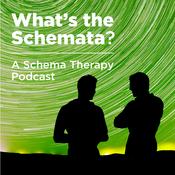No advertising. More Prime.
No advertising. More Prime.
No advertising. More Prime.
No advertising. More Prime.
The podcast starts in
- 0 sec.

Episode 62: Remco Van Der Wijngaart (Netherlands): New Year Episode! How to Get Good at What We Do



Whats the Schemata? A Schema Therapy Podcast